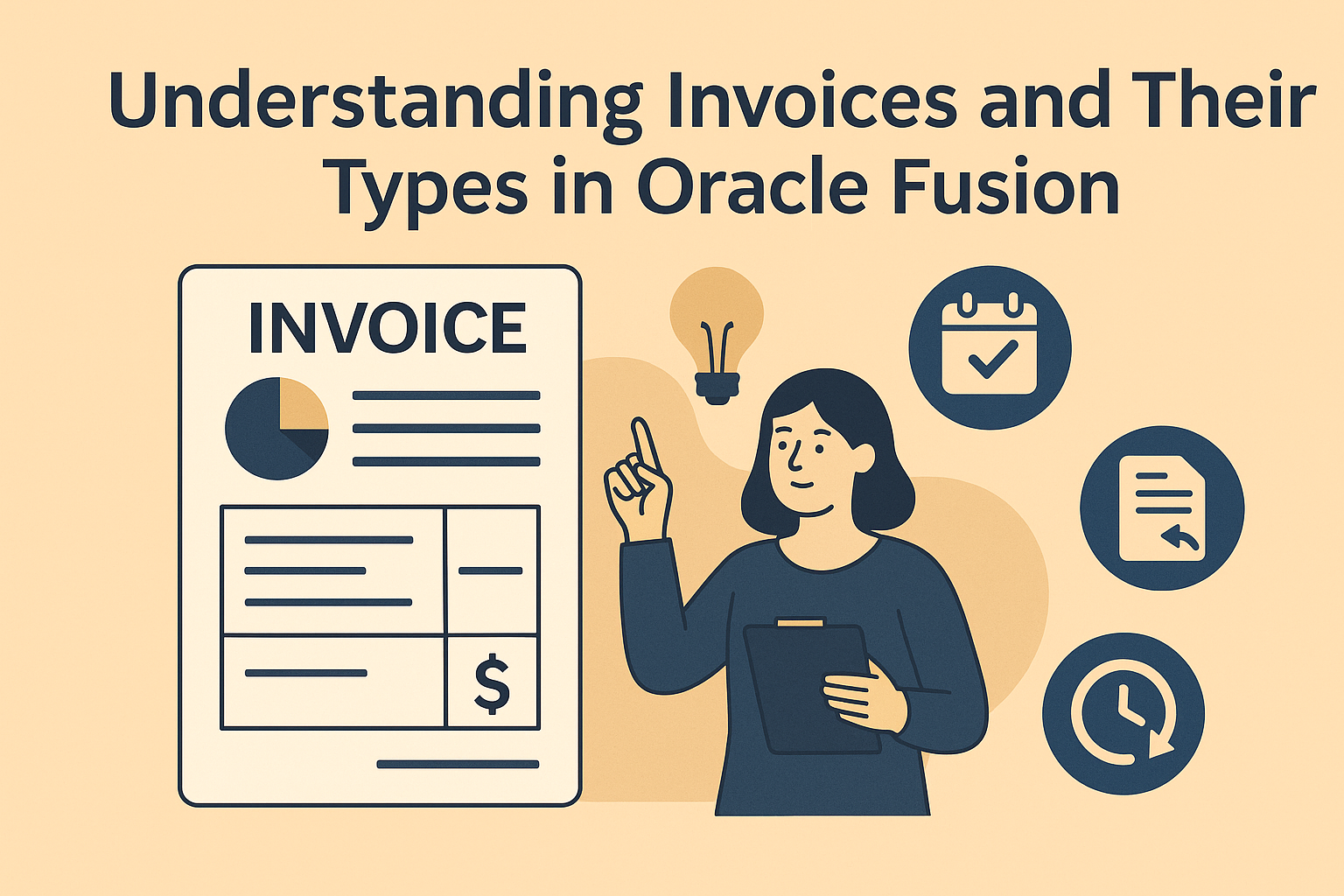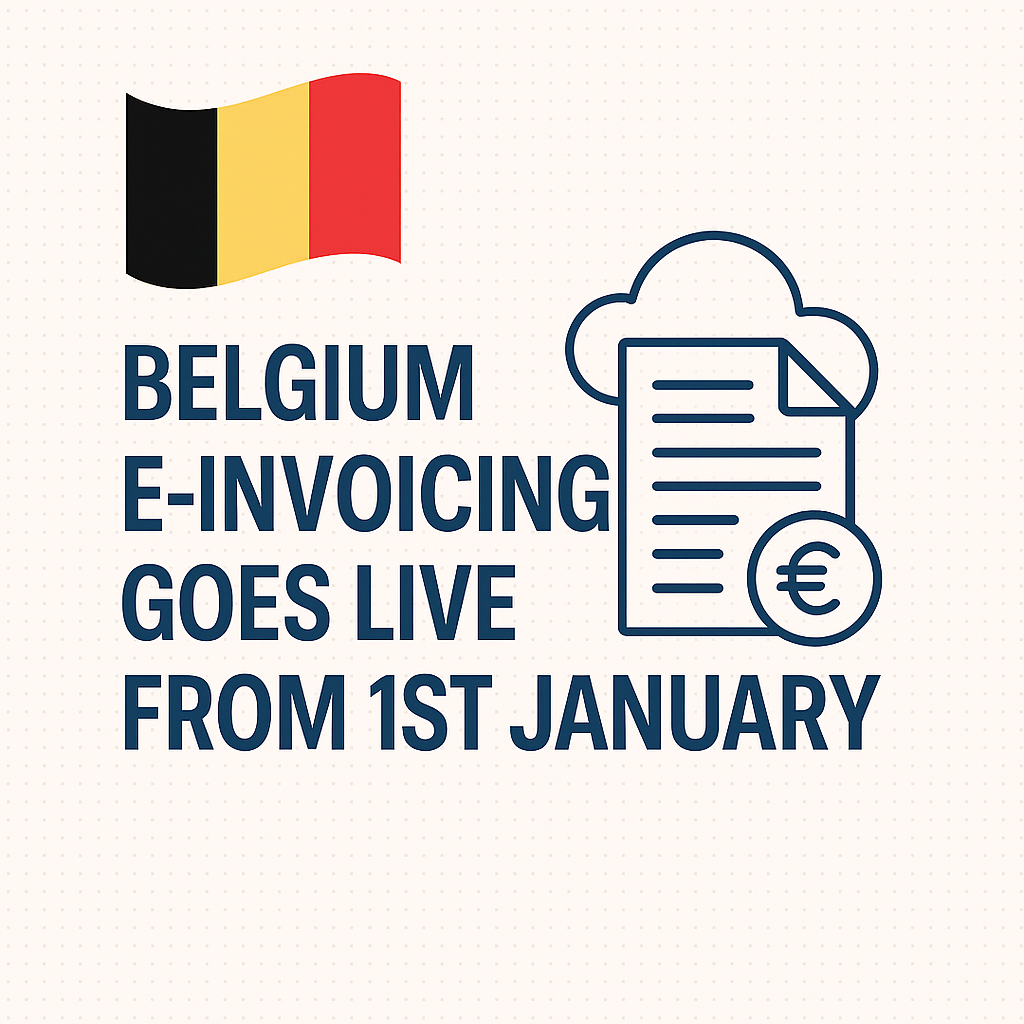Oracle Fusion Accounts Payable provides a flexible, robust system to manage all types of invoices used in daily business operations. Whether it’s a regular vendor bill, an advance payment, or an adjustment for an earlier transaction — Fusion has a predefined structure for each scenario.
What is an Invoice?
An invoice in Oracle Fusion represents a financial document issued by a supplier to request payment for goods or services provided. The Accounts Payable module is where invoices are recorded, validated, approved, and processed for payment.
Types of Invoices
1. Standard Invoice
A Standard Invoice is the most common type of invoice. It represents a liability towards a supplier for goods or services received.
Use Case:
When a supplier sends an invoice for a purchase order (PO) or a non-PO expense, you record it as a standard invoice.
Key Features:
- Can be matched to a purchase order (PO-based) or entered without PO (non-PO).
- Can include tax, freight, and other charges.
- Used for regular vendor payments.
Navigation :- Payables > Task > Create Invoice > Type: Standard
2. Credit Memo
A Credit Memo is issued by a supplier to reduce the amount owed by the business due to returned goods or overcharges.
Use Case:
You received damaged goods or were overcharged; the supplier sends a credit memo to adjust the balance.
Key Features:
- Always recorded with a negative amount.
- Applied against one or more existing standard invoices.
Reduces the total payable to the supplier.
Navigation:- Payables > Task > Create Invoice > Type: Credit Memo
3. Debit Memo
A Debit Memo is initiated by the buyer (your company) to notify the supplier of a reduction in the amount payable, often due to returned items or billing discrepancies.
Use Case:
You find a quality issue with the delivered products and decide to reduce the invoice amount; you create a debit memo.
Key Features:
- Manually created by the company (not the supplier).
- Acts like a negative invoice, reducing liability.
- Can be used independently or matched to a standard invoice.
Navigation:- Payables > Task > Create Invoice > Type: Debit Memo
4. Prepayment Invoice
A Prepayment Invoice is created when you pay a supplier in advance, before goods or services are received.
Use Case:
You pay 50% advance to a supplier for raw materials before delivery.
Key Features:
- Applied against future standard invoices.
- Can be partially or fully applied.
- Helps in tracking advance payments and applying them correctly.
Types:
- Temporary Prepayment – Applied to a specific invoice.
- Permanent Prepayment – Not applied to a specific invoice; usually retained.
Steps:
- Create a Prepayment Invoice and pay it
- Later, apply it to the Standard Invoice when it arrives
- Navigation:- Payables > Task > Create Invoice > Type: Prepayment
- Create Standard Invoice > Actions > Apply Prepayment
5. Mixed Invoice
A Mixed Invoice includes both positive and negative line items — a combination of a standard invoice and a credit memo in one document.
Use Case:
You purchase items and return some at the same time. A mixed invoice is created to reflect both the payable and the adjustment.
Key Features:
- Rarely used but helpful for handling complex transactions.
- Can have both debit and credit lines.
6. Multiperiod Accounting Invoice
Used for expenses that span across multiple accounting periods, such as rent or service contracts.
Use Case:
You pay upfront for a 12-month software subscription — the cost is recorded monthly using multiperiod accounting.
Key Features:
- Supports deferring and recognizing expenses over several periods.
- Improves financial accuracy and compliance with accounting standards.
Navigation:- Payables > Invoices > Create Invoice > Line Level > Enable Multiperiod Accounting and enter date (from and to) with code combination
Conclusion
Oracle Fusion’s invoice types are designed to meet a variety of financial and compliance needs. Understanding each type ensures proper invoice processing, accurate financial reporting, and smooth supplier relationships.
Whether you’re a finance consultant, accounts payable user, or an Oracle Fusion learner, mastering these invoice types is essential for streamlining your procure-to-pay (P2P) cycle.







Leave a Reply
You must be logged in to post a comment.